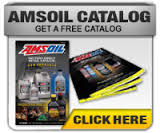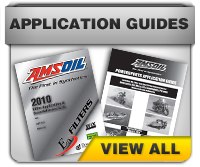In my video tip, I mentioned that I was communicating with a Dealer who had decided not to make a current customer aware of a new product offered by AMSOIL. This customer found out about this new product through other means and was not very happy with their servicing Dealer. Communicating this information to this customer could have saved this Dealer a great deal of angst, but this Dealer didn't want to introduce this product because they didn't make as much commission as other products.
Do you see the problem here? The focus of the Dealer is on himself, not the customer. The customer knows their customers
and what they will buy. The focus needs to be on your customer and that is why it is so important to communicate with them, and to do so in a manner in which they prefer.
We all know what happened to the Titanic. Clear and direct communication probably would have prevented the tragedy and the loss
of more than 1,500 lives.
Here are some tips on how you can communicate more effectively with your customers.
1.) Listen to the customer.
It seems simple and intuitive, but active listening is one of the most important components of effective communication. Take notes on what the customer is saying, and rephrase their concerns to confirm that you understand what their complaint, concern or question is. Don't simply reel off a list of prepared questions. This can hamper active listening.
2.) Be informed.
Effective communication needs to be educated communication. Before addressing a comment from a customer, make sure you have all the right information. Let's take this in two parts. First, be as educated as possible on the AMSOIL product(s) you are presenting. Investigate every topic related to the AMSOIL products, your services and to their market that you can. This will
help you to be able to respond with great information to customer issues in an informed manner. However, because you can never know everything, be willing to tell the customer that you have to do some research or will contact the AMSOIL Technical Department to make sure you are giving them an accurate response, and look it up before answering to their comments. Customers will appreciate your thoroughness and professionalism.
3.) Follow up!
After the initial communication has ended, be sure to contact your customer again to ensure that their concerns have been adequately addressed. This does a few things. First, it confirms that the answer you provided was adequate, which is not only good customer service, but it helps you in answering similar questions in the future. Second, it allows the customer to ask any follow up questions necessary, which expands your knowledge base and leads to a more satisfied customer. Moreover, customers who feel taken care of are more likely to become repeat customers of your AMSOIL business, impacting your bottom line.
And last but not least;
4.) Beware of interrupting!
Titanic wireless operator Jack Phillips interrupted a wireless message from a nearby ship, telling them to shut up. In doing so, he prevented that ship from sending Titanic an iceberg warning Be careful about interrupting others, particularly your customers. They'll be especially upset if, while they're explaining a problem, you interrupt them and start offering a solution. This is what is called "premature elaboration." Don't fall into this trap, even if you have seen the same problem before. If you feel you have to interrupt, at least cut to the chase and tell the other person what you think his or her main idea was. That way, the other person at least can confirm or correct you, and in either case save time.
As to the method of communication preferred, you have to ask! Does your customer prefer to communicate in face-to-face meetings? On the phone? Email? Blog? Newsletter? A combination of these methods? Be sure to ask how many different communication modes they prefer.
Remember, communication is King! Take 100% responsibility for the communication with your customers and watch your business
increase!
Good Luck and Good Selling!
Rick & Kara Rivord
Do you see the problem here? The focus of the Dealer is on himself, not the customer. The customer knows their customers
and what they will buy. The focus needs to be on your customer and that is why it is so important to communicate with them, and to do so in a manner in which they prefer.
We all know what happened to the Titanic. Clear and direct communication probably would have prevented the tragedy and the loss
of more than 1,500 lives.
Here are some tips on how you can communicate more effectively with your customers.
1.) Listen to the customer.
It seems simple and intuitive, but active listening is one of the most important components of effective communication. Take notes on what the customer is saying, and rephrase their concerns to confirm that you understand what their complaint, concern or question is. Don't simply reel off a list of prepared questions. This can hamper active listening.
2.) Be informed.
Effective communication needs to be educated communication. Before addressing a comment from a customer, make sure you have all the right information. Let's take this in two parts. First, be as educated as possible on the AMSOIL product(s) you are presenting. Investigate every topic related to the AMSOIL products, your services and to their market that you can. This will
help you to be able to respond with great information to customer issues in an informed manner. However, because you can never know everything, be willing to tell the customer that you have to do some research or will contact the AMSOIL Technical Department to make sure you are giving them an accurate response, and look it up before answering to their comments. Customers will appreciate your thoroughness and professionalism.
3.) Follow up!
After the initial communication has ended, be sure to contact your customer again to ensure that their concerns have been adequately addressed. This does a few things. First, it confirms that the answer you provided was adequate, which is not only good customer service, but it helps you in answering similar questions in the future. Second, it allows the customer to ask any follow up questions necessary, which expands your knowledge base and leads to a more satisfied customer. Moreover, customers who feel taken care of are more likely to become repeat customers of your AMSOIL business, impacting your bottom line.
And last but not least;
4.) Beware of interrupting!
Titanic wireless operator Jack Phillips interrupted a wireless message from a nearby ship, telling them to shut up. In doing so, he prevented that ship from sending Titanic an iceberg warning Be careful about interrupting others, particularly your customers. They'll be especially upset if, while they're explaining a problem, you interrupt them and start offering a solution. This is what is called "premature elaboration." Don't fall into this trap, even if you have seen the same problem before. If you feel you have to interrupt, at least cut to the chase and tell the other person what you think his or her main idea was. That way, the other person at least can confirm or correct you, and in either case save time.
As to the method of communication preferred, you have to ask! Does your customer prefer to communicate in face-to-face meetings? On the phone? Email? Blog? Newsletter? A combination of these methods? Be sure to ask how many different communication modes they prefer.
Remember, communication is King! Take 100% responsibility for the communication with your customers and watch your business
increase!
Good Luck and Good Selling!
Rick & Kara Rivord



 RSS Feed
RSS Feed











